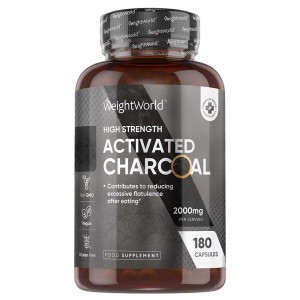Menopause And Weight Loss: Why Is It So Difficult?
Losing weight during and after menopause is a hot topic as it is sometimes inevitable to put on some excess pounds during this period. Menopause starts officially after a woman hasn’t had a mental cycle for 12 months straight. You may notice that as you get older, maintaining a steady weight becomes harder and more difficult than before, especially in this period. Based on research, it is around this menopause transition that a lot of women tend to gain weight for many reasons, including a lowering metabolism. This weight gain is often difficult to avoid however, there are ways you can take back control and aid your weight loss.
How Menopause Can Affect Weight
There are so many factors relating to menopause that can cause weight gain. These includes:

1. Hormonal Changes: The hormone that causes weight change during menopause is more likely to make you gain weight as both low and elevated level of estrogen may lead to increased fat storage. In this case, weight gain will be around the hips, thighs and abdomen.
2. Muscle Mass: Loss of muscle mass is a very big influencer of weight gain during menopause. It is unfortunately already established that muscle mass diminishes as we grow older and fat, on the other hand, increases. As a result of the loss of muscle mass in the body, it becomes difficult for the body to control how it uses calories via the metabolism, hence making it challenging to maintain a healthy weight.
3. Lack of Sleep: A lack of quality sleep can lead to excess snacking and a slower metabolism resulting in weight gain. In the case of menopause, a lot of women find it difficult to sleep which eventually leads to weight gain.
4. Genetics: A simple case of genetics can also influence the issue of menopause and weight gain. It may not be fair, but if your parents carry extra weight, you are likely to do the same.
5. Insulin resistance: As women age, they gradually become insulin resistant and during menopause, this can lead to you having difficulties losing weight. Insulin resistance is when the body can't react correctly to insulin production, leading to increased blood sugar levels.
How To Lose Weight During Menopause
Some people believe that menopause and weight loss do not go hand in hand, but it is actually very possible to lose weight during menopause if you put the work in! To help women going through menopause, you can try:

1. Getting Healthy Sleep: Having established that a lack of sleep is related to weight gain, it is advisable to try and get help so you can have healthy, restful and quality sleep. This can include going to bed earlier or finding ways to tackle the causes of restless nights due to menopause such as night sweats.

2. Balancing Your Diet: There are different metabolism-boosting diets to engage in during this period which includes eating a lot of proteins and fibres, drinking green tea, take a lot of dairy products and improving your relationship with food by practising mindful eating. You can also add foods into your diet that contain phytoestrogens such as soy or use food supplements such as fenugreek or raspberry ketone pure.

3. Becoming More Active: Around this age, most people become less active and fail to follow their own diet and exercise plan, giving room for extra weight. However, exercise is still essential at this age because it doesn’t only encourage the idea of menopause and weight loss, it also improves your mood and promotes your muscles! Exercises like cardio, yoga and resistant training are ideal to help you do well.
Recommended Products
-

 Extra15%Off
Extra15%OffRaspberry Ketone Pure Capsules
1290 Reviews1200mg 180 Capsules | Keto-Friendly SupplementRegular price £12.99Sale price £12.99 Regular priceUnit price per£15.99Sale save18% -

100% Organic Ceremonial-Grade Matcha Green Tea Powder
350 Reviews100g Powder | For Crash-Free Energy & Weight ManagementRegular price £11.99Sale price £11.99 Regular priceUnit price per£14.99Sale save20% -

 Extra15%Off
Extra15%OffSkinny Coffee
520 Reviews28 Sachets | 7-in-1 Superfood Coffee SupplementRegular price £12.99Sale price £12.99 Regular priceUnit price per -

 Extra15%Off
Extra15%OffResveratrol Capsules
574 Reviews550mg 120 Capsules | Heart & Skin SupplementRegular price £26.79Sale price £26.79 Regular priceUnit price per -

 Extra15%Off
Extra15%OffApple Cider Vinegar Complex Capsules
424 Reviews1860mg 180 Capsules | Smell-Free ACV Supplement With ProbioticsRegular price £8.49Sale price £8.49 Regular priceUnit price per -

 Extra15%Off
Extra15%OffGuarana Slimming Patches
492 Reviews60 Patches | For Weight Management & EnergyRegular price £12.99Sale price £12.99 Regular priceUnit price per -

 Extra15%Off
Extra15%OffApple Cider Vinegar Gummies
632 Reviews1000mg 90 Gummies | Pure ACV With the ‘Mother'Regular price £8.49Sale price £8.49 Regular priceUnit price per


















